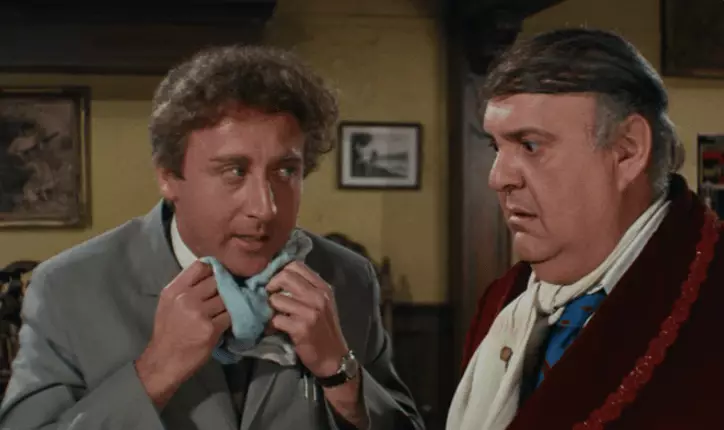Mel Brooks, a titan of comedy whose work has shaped the landscape of American entertainment, faced significant indecision when it came to adapting his celebrated film “The Producers” into a musical. Initially released in 1967, the original film earned critical acclaim, including an Academy Award for Best Original Screenplay. However, Brooks himself was skeptical about whether the film’s narrative required additional musical elements. This hesitation raises an interesting point about creative adaptations: sometimes the best things evolve from persistent persuasion.
Brooks revealed in an interview with The Guardian that the impetus behind the adaptation came from producer David Geffen, whose relentless enthusiasm played a crucial role in convincing Brooks. The story of their collaboration illustrates not only the power of creative partnerships but also how they can lead to exemplary outcomes that may not have seemed initially viable. Brooks recalls, “David Geffen called me every day. I said, ‘David, it’s a perfectly good little movie… There’s no reason to make it a musical.’” Geffen’s unwavering determination prompted Brooks to reconsider, ultimately resulting in a creative leap that many now recognize as one of Brooks’ finest accomplishments.
Upon agreeing to the project, Brooks joined forces with the late Thomas Meehan to co-write the musical, adding his signature comedic flair to the score. One of the most memorable pieces of music, “Springtime for Hitler,” exemplifies the audacious humor that Brooks is known for. This song ignited conversation regarding the boundaries of comedy and cultural critique, as it incorporated shocking elements in a manner that compelled audiences to laugh while reflecting on historically sensitive topics.
The plot centers around Max Bialystock, a struggling producer who devises a scheme to stage a guaranteed flop and benefit from the investment backfire. This premise reveals a subversive narrative strategy—using satire and musical theater to comment on artistic failure and ambition, ultimately leading to unforeseen success. Ironically, what was intended to be a failure became a sensation.
When “The Producers” debuted on Broadway in 2001, it exceeded all expectations by clinching 12 Tony Awards, and accolades from critics showcased its brilliance. The New York Times labeled it “a sublimely ridiculous spectacle,” highlighting its irreverent approach and energetic performances. This Broadway success not only rejuvenated Brooks’ legacy but also introduced the timeless story to an entirely new audience, establishing its presence in global theater.
As the show prepares to make its way to London’s Garrick Theatre, where Brooks previously achieved success with “Young Frankenstein,” it symbolizes the enduring appeal of his unique blend of humor and social commentary. Brooks’ recent reflections on the late Gene Hackman, who appeared in the film adaptation, underscore the interconnectedness of creative minds in Hollywood. His casual mention of Hackman’s role as the Blind Hermit showcases the camaraderie that often exists behind the scenes in the entertainment industry.
Ultimately, “The Producers” serves as a case study on how tenacity, collaboration, and unorthodox humor can redefine and elevate the narrative legacy of a beloved story, underscoring that magic often lies in the unexpected. Brooks’ journey from skepticism to acclaim sets a powerful precedent for aspiring creators: sometimes, with the right push, magic can indeed happen.


Leave a Reply